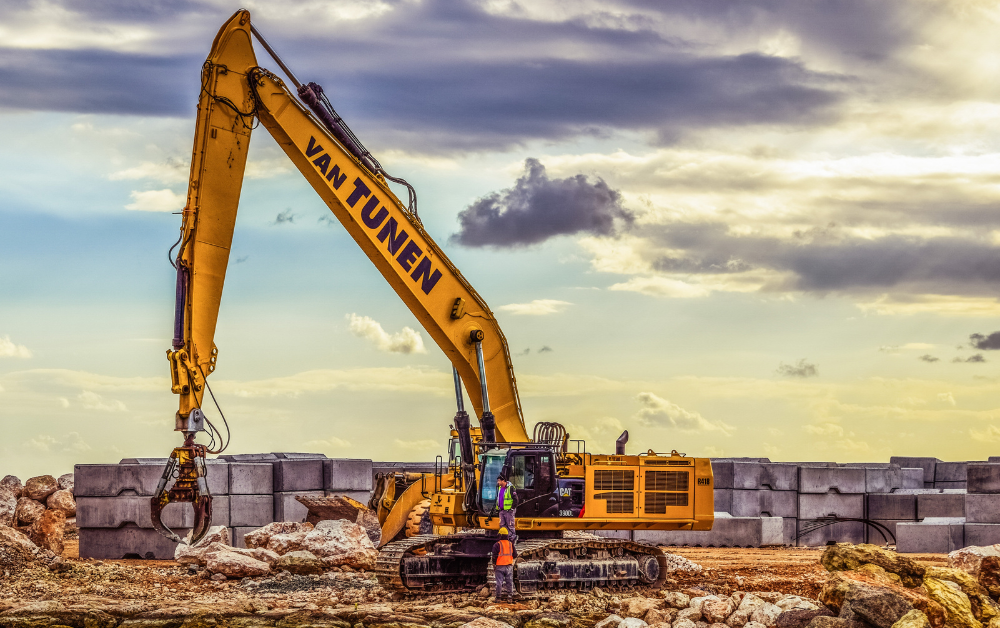How Does Company Restoration Affect Business Licenses?

Strong 8k brings an ultra-HD IPTV experience to your living room and your pocket.
When a company gets struck off the Companies House register, it’s like hitting the pause button on your business. You can’t trade, access assets, or operate legally—everything grinds to a halt. For many UK business owners, company restoration becomes the go-to solution to bring their company back to life. But what happens to your business licenses during this process? Do they automatically come back, or do you need to start from scratch? In this blog, we’ll explore how company restoration impacts your business licenses, diving into the process, its importance, and the benefits of getting it right. Whether you run a restaurant, a construction firm, or a consultancy, understanding this aspect of company restoration can save you time, money, and headaches. Let’s dive in!
What Are Company Restoration and Business Licenses?
Before we explore the connection, let’s break down the two key concepts: company restoration and business licenses.
Understanding Company Restoration
Company restoration is the legal process of reinstating a dissolved company to the Companies House register in the UK. A company might be struck off for various reasons—failing to file annual returns, missing accounts, or voluntarily dissolving due to financial issues. Restoration reverses this dissolution, allowing the company to resume operations as if it were never struck off. There are two main methods:
Administrative Restoration: If the company was dissolved within the last six years and was trading at the time, you can apply using Form RT01 for a £100 fee. This process is quicker, often taking 2-4 weeks.
Court-Ordered Restoration: If the six-year window has passed or the dissolution was voluntary, you’ll need to apply through the High Court. This costs £280 in court fees and can take 3-6 months, often requiring legal help.
Once restored, the company regains its legal status, name, and ability to trade. But what about the licenses that allowed it to operate in the first place?
What Are Business Licenses?
Business licenses are permits or authorizations required to operate legally in specific industries or locations. They ensure compliance with regulations, safety standards, and local laws. The type of license depends on your business:
A restaurant might need a food hygiene certificate, alcohol license, and premises license.
A construction firm may require a contractor’s license or health and safety certification.
A consultancy might need professional accreditations or data protection registrations.
These licenses are often tied to the company’s legal entity, meaning they’re linked to your company’s registration number at Companies House. When a company is dissolved, these licenses can become invalid, suspended, or require reapplication. Company restoration aims to bring the company back, but its effect on licenses isn’t always straightforward.
How Company Restoration Impacts Business Licenses
When you restore a company, you might assume everything—licenses included—snaps back to normal. However, company restoration doesn’t automatically reinstate your business licenses. Let’s explore how the process affects them.
Licenses Become Invalid During Dissolution
When your company is struck off, it ceases to exist as a legal entity. Any licenses tied to that entity typically become invalid. For example, a restaurant’s alcohol license or a contractor’s safety certification might be void because the issuing authority (like a local council or trade body) no longer recognizes the company. During company restoration, you’ll need to address this gap.
Reapplication May Be Required
After company restoration, many licenses require reapplication. The issuing authority will want to confirm that the restored company still meets the criteria for the license. For instance:
A food business might need to reapply for a food hygiene certificate, involving a new inspection (£150-£300).
A construction firm may need to renew its contractor’s license, which could cost £500-£1,000, depending on the authority.
If you held a professional accreditation (e.g., for financial advisors), you might need to pay renewal fees or retake exams, costing £200-£1,500.
Reapplying can take time—weeks or months—delaying your ability to trade fully. Some authorities might fast-track the process if you provide proof of company restoration, but this isn’t guaranteed.
Some Licenses Might Remain Valid
In rare cases, certain licenses might still be valid post-restoration, especially if they were issued to an individual director rather than the company. For example, a personal license to sell alcohol (held by a person, not the company) might remain active. However, premises-specific licenses tied to the company’s address and registration number will likely need renewal. Check with each issuing body to confirm the status of your licenses after company restoration.
Additional Costs and Compliance
Reapplying for licenses often comes with costs beyond the application fees. You might need to update insurance policies, retrain staff, or pass new inspections to meet current regulations. For example, a restaurant might need to spend £1,000 on staff training and equipment upgrades to pass a food safety inspection. These compliance costs can add up, making company restoration more expensive than expected.
Delays in Resuming Operations
If your business relies on licenses to operate—like a pub needing an alcohol license or a taxi firm requiring a private hire license—you can’t trade legally until the licenses are reinstated. The time spent reapplying can delay your operations, costing you revenue. For a pub earning £3,000 weekly, a one-month delay could mean £12,000 in lost income. Company restoration gets your company back, but the license hurdle can slow your return to normalcy.
Risk of Losing Grandfathered Licenses
Some older licenses operate under “grandfathered” rules, meaning they were issued under less strict regulations. If your company was dissolved and you need to reapply post-restoration, you might lose these benefits and face stricter modern requirements. For example, a manufacturing firm might need to invest £5,000 in new equipment to meet updated environmental standards, a cost they avoided under the old license.
Understanding how company restoration affects your licenses helps you plan ahead. Let’s look at why this matters for your business.
Why Company Restoration and License Management Matter
Managing your business licenses during company restoration isn’t just a legal formality—it’s a critical step for your business’s survival and growth. Here’s why it’s so important:
Legal Compliance
Operating without valid licenses after company restoration can lead to fines, legal action, or even forced closure. For example, a restaurant serving food without a renewed hygiene certificate could face £5,000 in fines or a shutdown order. Ensuring your licenses are reinstated keeps you on the right side of the law.
Avoid Revenue Loss
Licenses often determine your ability to trade. A construction firm without a contractor’s license can’t bid on projects, losing potential contracts worth thousands. By addressing license issues during company restoration, you minimize downtime and keep revenue flowing.
Protect Your Reputation
Clients and regulators expect businesses to operate legally. If you’re caught trading without proper licenses post-restoration, your reputation could take a hit. Customers might lose trust, and regulators could impose sanctions, making it harder to rebuild your brand. Proper license management during company restoration shows you’re a reliable business.
Prevent Additional Costs
Ignoring license renewals can lead to penalties or higher reapplication fees. Some authorities charge late fees, and failing inspections due to outdated compliance can mean extra costs for retraining or upgrades. Tackling licenses early in the company restoration process saves you from these expenses.
Ensure Business Continuity
Your business likely relies on licenses to function. A taxi firm without a private hire license or a salon without a health permit can’t serve customers. By prioritizing license reinstatement during company restoration, you ensure continuity, keeping your operations smooth and uninterrupted.
The stakes are high when it comes to licenses. Let’s explore the benefits of handling this aspect of company restoration effectively.
Benefits of Managing Licenses During Company Restoration
Addressing your business licenses during company restoration offers several advantages, helping you get back on track faster and more efficiently. Here’s what you gain:
Resume Operations Quickly
By reapplying for licenses as soon as company restoration is complete, you minimize delays in trading. For example, a pub that renews its alcohol license within a week of restoration can reopen sooner, avoiding weeks of lost revenue. Quick action gets your business up and running without unnecessary downtime.
Avoid Penalties and Fines
Reinstating licenses promptly ensures you’re operating legally, saving you from fines. A construction firm that renews its contractor’s license post-restoration avoids penalties of £1,000 or more for non-compliance. This keeps your finances intact and your business safe.
Maintain Customer Trust
Clients want to work with a legitimate business. Renewing licenses during company restoration shows customers you’re fully operational and compliant, boosting their confidence. A salon with a valid health permit post-restoration can attract clients who might otherwise go elsewhere.
Save on Costs in the Long Run
Proactively managing licenses can prevent costly mistakes. For instance, passing a food safety inspection on the first try saves a restaurant from paying £300 for a re-inspection. Addressing licenses early in the company restoration process reduces the risk of penalties or rushed compliance expenses.
Retain Competitive Edge
Some licenses, like trade certifications, give you a competitive advantage. A restored construction firm with a renewed safety certification can bid on projects that unlicensed competitors can’t. Company restoration paired with license reinstatement keeps you ahead in your industry.
Streamline the Restoration Process
Handling licenses alongside company restoration creates a smoother transition. By coordinating with issuing authorities early, you avoid last-minute scrambles and ensure all legal requirements are met. This holistic approach saves time and reduces stress.
These benefits make license management a key part of company restoration. Let’s wrap up with some final thoughts.
Conclusion
Company restoration brings your business back to life, but its impact on business licenses can’t be overlooked. While restoration reinstates your company’s legal status, licenses often require reapplication, costing time and money. By understanding this process, you ensure compliance, avoid penalties, and resume operations quickly. Prioritize license renewals during company restoration to protect your business and maintain customer trust. With careful planning, you’ll navigate this challenge and get back to business stronger than ever!
Note: IndiBlogHub features both user-submitted and editorial content. We do not verify third-party contributions. Read our Disclaimer and Privacy Policyfor details.







